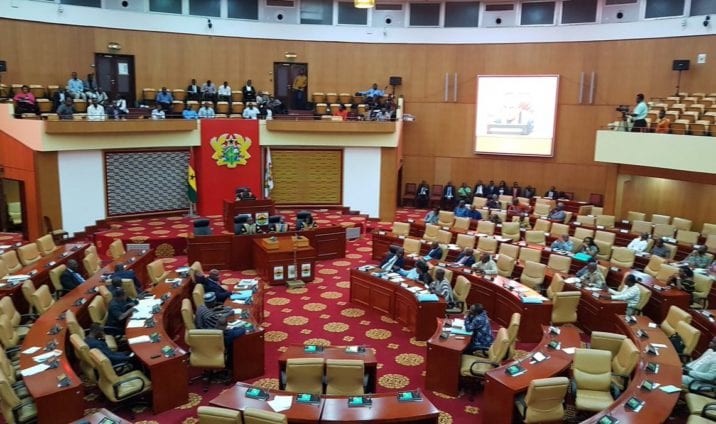The president will have limited powers when the Imposition of Restrictions Bill 2020 is passed into law.
The Bill is to legalise the imposition of restrictions on persons in the event of a disaster, emergency or similar circumstances like the novel coronavirus pandemic to ensure public safety.
The emergency legislation was brought to Parliament in accordance with Article 21 (4) (c) and (d) of the Constitution.
Both the Majority and Minority members on the Constitutional and Legal Affairs Committee of Parliament brokered a deal to limit the power of the president after the latter called for the withdrawal of the Bill on Thursday.
The Minority, after a meeting, to determine whether or not the Bill should be passed under a certificate of urgency said the Bill lacked specificity and would give the executive too much power.
Commenting on what he described as structural deficiencies, South Dayi MP, Rockson Dafeamekpor said government cannot seek to create offences and a penalty in an executive instrument.
“…which is never done in law. It is only a statute of Parliament that can create a statute that will criminalize certain conduct and prescribe sanctions for it.
“But this government wants to come out with an executive instrument that will give the president power to create offences and create penalties for same,” he stressed.
But as JoyNews’ Joseph Opoku Gakpo reports, at a meeting of the Constitutional and Legal Affairs Committee of Parliament Friday, the Majority and Minority have agreed Parliament and other institutions should be consulted before the president imposes restrictions.
This provision was not captured in the draft Bill.
Also, penalties to flouting impositions will now be defined by Parliament instead of the executive.
Chairman of the Committee, Ben Abdallah told JoyNews the proposed amendments will be sent to the plenary on Friday and hopes it will be passed before sitting adjourns.
He said leaving the Bill as it was would be “sinning against the Constitution.
"So what we have done or what we are proposing is that the sanction regime ought to be captured in the Bill itself and not through an executive instrument.”
NDC MP for Akatsi South and member of the Committee, Ben Ahiafor says the Bill will now have the support of minority MPs.
He says changes to the draft document are substantial.
“We have imposed restrictions on the president such that the president will not act alone. He will act in accordance with advice from relevant institutions.
“The president no longer has the power to impose a penalty by executive instrument and anytime the president is going to impose restrictions, in an emergency, disaster or similar circumstances, there must be a justifiable reason in accordance with the spirit of the constitution,” added.
Latest Stories
-
Ghana-Russia Centre to run Russian language courses in Ghana
45 minutes -
The Hidden Costs of Hunger: How food insecurity undermines mental and physical health in the U.S.
1 hour -
18plus4NDC marks 3rd anniversary with victory celebration in Accra
4 hours -
CREMA workshop highlights collaborative efforts to sustain Akata Lagoon
4 hours -
2024/25 Ghana League: Heart of Lions remain top with win over Basake Holy Stars
5 hours -
Black Queens: Nora Hauptle shares cryptic WAFCON preparation message amid future uncertainty
5 hours -
Re-declaration of parliamentary results affront to our democracy – Joyce Bawah
6 hours -
GPL 2024/25: Vision FC score late to deny Young Apostles third home win
6 hours -
Enhancing community initiatives for coastal resilience: Insights from Keta Lagoon Complex Ramsar Site Workshop
6 hours -
Family Health University College earns a Presidential Charter
6 hours -
GPL 2024/25: Bibiani GoldStars beat Nsoatreman to keep title race alive
6 hours -
GPL 2024/25 Bechem United keep title hopes alive with narrow win over FC Samartex
6 hours -
2024/25: Dauda Saaka scores as Asante Kotoko beat Dreams FC
6 hours -
M.anifest reflects on galamsey’s devastation 11 years after ‘No Shortcut to Heaven’
7 hours -
We’ll have the last laugh – Sammy Gyamfi slams EC’s “cantata” re-collation
7 hours

